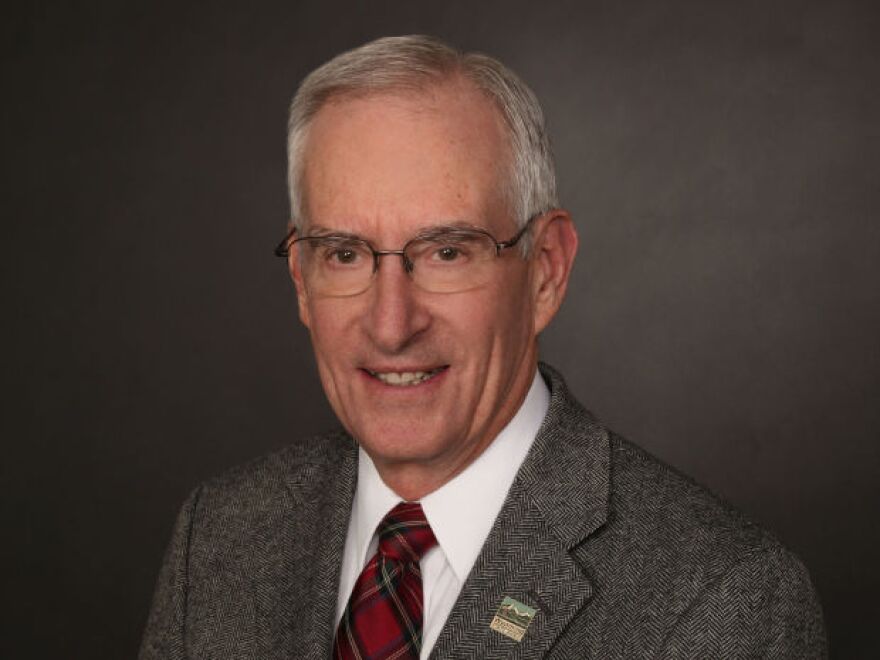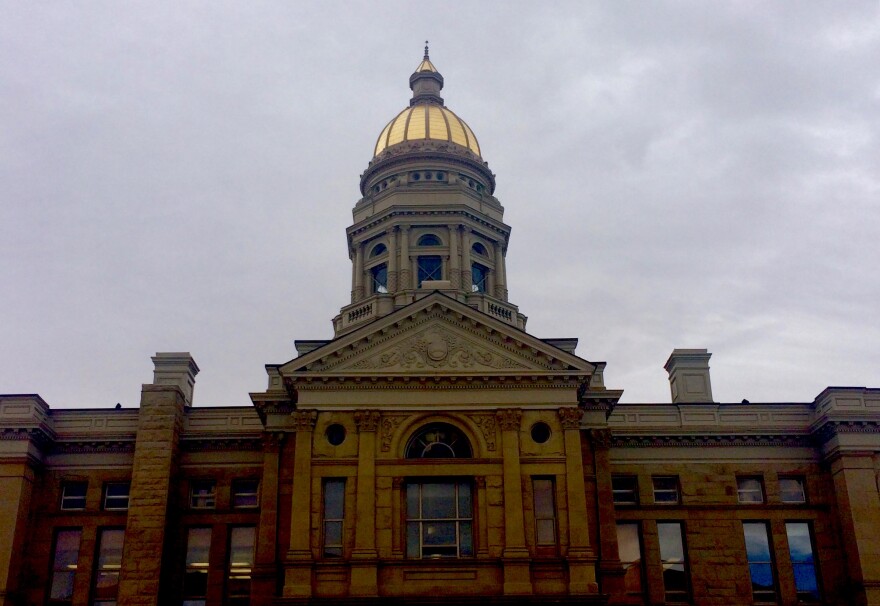The Consensus Revenue Estimating group or CREG will release its much-anticipated revenue forecast on Tuesday. Wyoming’s revenues are expected to drop 500 to 600 million dollars, which means legislators will have a lot less money to spend compared to the last budget.
This comes at a time when the governor has already asked state agencies to find ways to trim 200 million dollars from the existing budget. The culprit is falling energy prices, specifically from oil and gas.

In some ways you could say lawmakers have been waiting for this day. Ever since natural gas prices started dipping in the last decade, lawmakers have been careful with how they’ve spent money and started saving for the future. Speaker of the House Kermit Brown said the spending was strategic.
“And we’ve used the majority of that money building one time projects and not trying to increase recurring expenses. And so we have a lot of nice new things that we bought and we built, we tried not to build the state payroll or the state government any more than we had to in anticipation of this day.”
Oil and gas prices are roughly half of what they were projected to be a year ago and Brown has been told low prices may last for the next three years. Even after that they won’t return to the levels of the last decade. Last month Governor Matt Mead indicated that budget reductions are on the way.
“We are going to have to tighten our belts and tighten our belts a lot.”

Senate Minority Leader Chris Rothfuss admits they have to watch spending, but he’s not sure they need to go much further
“I don’t think there’s any reason for cuts, I really don’t.”
Rossfuss said the revenue decline is serious and they need to avoid large budget increases, but otherwise he thinks the state will be ok.
“I think we can go on with a reasonable budget, similar to the budget we had last time.”
The reason is simple. Rothfuss said the Legislative Reserve Account, which is also called a rainy day fund, has 2 billion dollars, so they can spend some of that. Meanwhile, the state has been earning record investment revenues and that return could also be used to soften the blow. And one more thing, the legislature has been automatically putting some money into savings, Rothfuss said they could use that money to pay for current needs. He said that Wyoming is prepared to weather the storm and leaders need to take a sensible approach.
“We don’t want to panic. We don’t want to wreck the state. We do recognize that we have a lot of funds available to us in savings and we want to make sure we are judicious about using those funds and at the same time not just senselessly cutting programs.“
Rothfuss said his biggest concern is that some budget hawks might see this as an opportunity to look to unnecessary austerity measures. While organizations like the Wyoming Liberty Group are calling for cuts in the budget, legislative leaders seem to be leaning towards keeping things mostly flat. But one area appears vulnerable, that’s state aid for local government.
Two years ago the legislature provided 175 million dollars and last year added another eight million dollars. But that money could either go away, or get substantially reduced. On a grey, rainy day that seemed to fit her mood, Laramie City Manager Janine Jordan is preparing for the worst.
“Historically what we know in Laramie is that when the state cuts their budget and reduces their spending, there is typically a similar reduction for local governments.”
And so in the last few days Jordan took some action.
“And so we are freezing hiring other than essential public safety positions, pending the outcome of the budget session.”
Despite efforts to diversify its local economy, Albany County and Laramie do not get the tax revenue that other places get, because it features a lot of federal lands and its largest employer, the University of Wyoming, is tax exempt.
She said Laramie gets about $160 per person to spend on services, where other comparable sized communities get thousands.
Riverton City Administrator Steven Weaver added it would be disappointing if the legislature cut any local government funding.
“In the good times, they’ve been packing away the money and we really haven’t. So I hope they would keep us at the same levels, because we really haven’t gained any more, but they have.”
Speaker of the House Kermit Brown said he understands their concern, but there are a lot of needs. Medicaid expansion could put 50 million dollars of federal money into the state budget, but Brown is not convinced that they can count on that money in the long term. He’s also not ready to consider any taxes.
“It would just be a total breach of trust with the people of the state of Wyoming to now say, and now we have to raise taxes because all of the money we saved, and all the revenue that’s coming from it is inadequate. And we’ve built all these recurring obligations in state government that you are going to have to pay for with more taxes. I can’t…we are a long ways from there.”
The Consensus Revenue Estimating Group report is scheduled to be released Tuesday, and the budget session begins in February.









